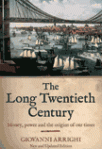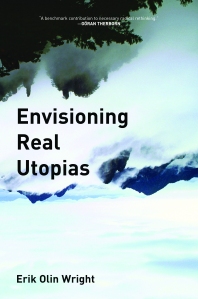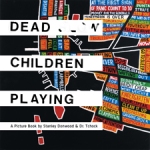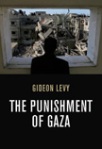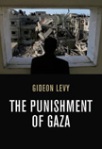Moshe Lewin, the historian, passed away on 14th August 2010. We have no information in English yet, but here is the obituary from Le Monde.
Moshe Lewin, historien
17.08.10 | 15h46 • Mis à jour le 17.08.10 | 15h49 Grand spécialiste de l’histoire, notamment sociale et économique, de l’Union soviétique, Moshe Lewin est mort à l’âge de 88 ans, le 14 août, à Paris, où il s’était retiré il y a trois ans, s’éloignant du débat intellectuel et scientifique qu’il avait tant aimé. Il était né le 7 novembre 1921 à Wilno, alors polonaise, aujourd’hui Vilnius, capitale de la Lituanie.
Sa mère était russe, son père juif polonais. Ce dernier avait fait de nombreux petits travaux ; devenu acrobate, il avait ensuite pris la direction du cirque de Wilno. Tous deux disparaissent en 1939 durant l’extermination des juifs de cette ville. Moshe Lewin y échappe en sautant dans un camion soviétique qui quitte la Lituanie à l’approche de l’armée nazie. Il portera toute sa vie une reconnaissance particulière à ces soldats soviétiques qui lui permirent d’échapper à la mort, reconnaissance qu’il gardera aussi vis-à-vis de l’URSS, tout en posant sur l’histoire de ce pays un regard profondément critique.
Une fois en URSS, il travaille dans un kolkhoze, puis dans une fonderie de l’Oural, avant d’entrer, quelques mois avant la fin de la guerre, dans une école d’artillerie. En 1945, il est autorisé comme étranger à quitter l’URSS : de Pologne, il rejoint la France, y vit de divers “petits boulots” (il sera un temps représentant d’un théâtre juif en France). Puis il part pour Israël, en militant sioniste de gauche qu’il était, et entreprend des études d’économie à l’université de Tel-Aviv.
Il revient à Paris en 1961, écrit une thèse sous la direction de Roger Portal, qui conduit à son ouvrage majeur, La Paysannerie et le pouvoir soviétique : 1928-1930 (Mouton, 1966), première étape intellectuelle d’un historien qui a profondément marqué l’historiographie soviétique de la seconde moitié du XXe siècle.
Dans cet ouvrage, il se saisit du monde paysan russe pour le révéler dans toute sa complexité, analyse les relations conflictuelles qu’il entretenait avec le pouvoir soviétique, ainsi que les tensions qui le traversaient. Il donne une lecture entièrement nouvelle des sources bureaucratiques soviétiques, y traque la moindre trace de profondeur sociale et humaine. Il affronte avec une intelligence toute particulière les immenses difficultés que provoquaient le travail sur ces sources, la presse, les documents officiels publiés et les ouvrages d’historiens et économistes soviétiques, donnant une grande leçon de méthode qui n’a rien perdu de son importance avec l’ouverture des archives.
Après avoir travaillé à la VIe section de l’Ecole pratique des hautes études (EPHE, future Ecole des hautes études en sciences sociales, EHESS), il devient professeur à l’université de Birmingham (1968-1978) puis à celle de Pennsylvanie, jusqu’en 1995. Il vient souvent en France, pays auquel il est resté attaché toute sa vie. Il donne un séminaire régulier à l’EHESS entre 1982 et 1985.
Dans des ouvrages essentiels, en particulier La Formation du système soviétique. Essais sur l’histoire sociale de la Russie dans l’entre- deux-guerres(Gallimard, 1987) ou encore Le Siècle soviétique (Fayard/ Le Monde diplomatique, 2003), il développe une théorie de la formation de l’Etat soviétique, de la transformation du parti révolutionnaire en parti d’administrateurs-bureaucrates qui tourne le dos à l’idée révolutionnaire ; il démonte avec précision les mécanismes de prise de décision, mais aussi, dans le second ouvrage, la place des personnalités dans les orientations de l’URSS après le stalinisme.
Dans Le Dernier Combat de Lénine (Editions de Minuit, 1967) ou The Political Undercurrents of Soviet Economic Debates : From Bukharin to the Modern Reformers (Princeton University Press, 1974), il soutient que le stalinisme n’était pas la suite inéluctable de la révolution, mais qu’une solution alternative eût été possible, dans le domaine politique ou économique, se référant pour ce dernier aux thèses de Boukharine.
Moshe Lewin s’engage ensuite dans une réflexion comparative entre stalinisme et nazisme, dans l’un des premiers ouvrages ayant traité d’un sujet désormais classique, dirigé en compagnie du grand historien du nazisme Ian Kershaw : Stalinism and Nazism : Dictatorships in Comparison(Cambridge University Press, 1997).
SES ENNEMIS INTELLECTUELS
Tous deux choisissent là d’orienter la réflexion vers une comparaison éclatée des diverses composantes de la dynamique des deux systèmes.
Soulignant les points communs de certaines formes politiques et sociales qui précèdent l’apparition du stalinisme et du nazisme (monarchies autoritaires, bureaucraties envahissantes, expansionnismes et impérialismes), Lewin et Kershaw donnent une place particulière aux théories de la modernisation, en soulignant les fondements anticapitalistes des deux idéologies.
Moshe Lewin adorait la polémique. Il aimait faire penser qu’il n’aimait pas ses ennemis intellectuels, tout en respectant à l’extrême leur travail. Il était sans concession. S’opposant à de multiples reprises aux tenants les plus marquants de l’école totalitaire, il est vite désigné comme le chef de file d’une école dite révisionniste.
Récusant les thèses de ceux qui voyaient dans l’Union soviétique un système monolithique exclusivement politique, dans lequel seuls quelques leaders déterminaient le cours de l’histoire, il chercha à comprendre l’URSS comme un système social dans lequel le politique ne pouvait s’entendre que comme un système complexe, où la bureaucratie, vue comme groupe social en formation, était déterminante. Il prenait au sérieux les luttes entre groupes sociaux qui ont en partie porté la révolution soviétique, ainsi que les conflits internes à la formation d’une classe bureaucratique.
Moshe Lewin n’a pas de disciples à proprement parler, car il tenait à la liberté d’esprit. Il laisse pourtant un champ entier de l’historiographie soviétique profondément marqué par son oeuvre, mais aussi par sa personnalité, aussi dérangeante qu’attachante. Ce polyglotte (il maîtrisait le polonais, le russe, l’anglais, le français, l’allemand, le yiddish et sa variante lituanienne le litvak,
l’hébreu) était un esprit brillant, toujours à l’écoute de la moindre transformation du monde contemporain. Il aimait, lors des longues discussions qu’il tenait, changer de langue, surprenant toujours son interlocuteur, passant du sérieux à l’humour le plus acide qui soit.
Moshe Lewin was the author of The Soviet Century.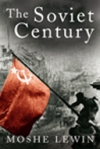
See here for a review by Neal Ascherson in the Observer.
To hear Moshe Lewin discussing the book see this post on our blog.
